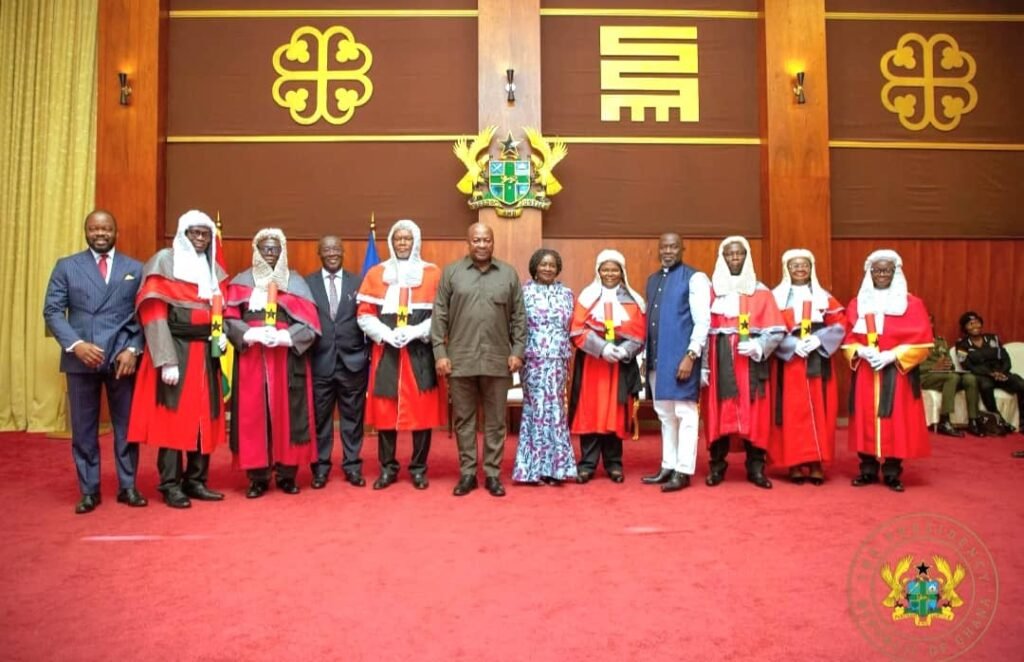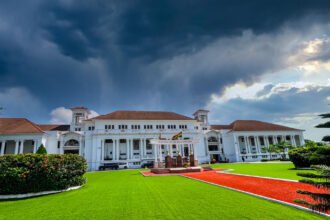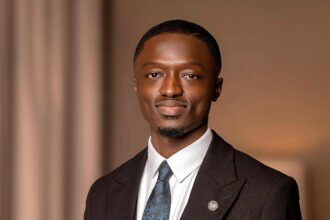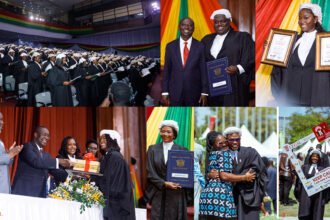
Published June 6, 2025
On 2nd July 2024, President John Dramani Mahama swore in seven (7) new Justices of the Supreme Court of Ghana.This follows their appointment and subsequent consideration and approval by Parliament, in line with Article 144 (2) of the Constitution, 1992.
Their elevation brings the total number of Justices on the court to twenty ( 20 )- including the suspended Chief Justice. It is expected that their appointments will significantly reduce the huge volume of pending appeals at the Apex court.
The Supreme Court of Ghana, whose jurisdiction is as profound as it is circumscribed, has original Jurisdiction in matters relating to the constitutional interpretation and enforcement. It alone is vested with the jurisdiction to hear appeals for convictions for high treasons and has the final jurisdiction to hear appeals from the National House of Chiefs in causes or matters affecting chieftaincy.
Additionally, the Supreme Court retains exclusive jurisdiction to hear and determine Presidential election Petitions. And by virtue of Article 132 the self-same court exercises supervisory jurisdiction over all the courts in Ghana. This power enables the Supreme Court to quash any orders or decisions of the courts below through Judicial Review-Mandamus, Prohibition, Quo Warranto etc (collectively known as Prerogative Writs).
233Legal extends its warm congratulations to Their Lordships Sir Dennis Dominic Adjei, Gbiel Simon Suurbaareh, Senyo Dzamefe, Kweku Tawiah Ackaah-Boafo, Philip Bright Mensah, Janapare Bartels-Kodwo, and Hafisata Amalebob on their elevation to the Supreme Court. We believe they have the requisite competences and integrity to discharge their duties at the Apex court of our Republic.
While their appointments have not been without controversy—drawing notable opposition from the Minority in Parliament—what must not be lost on our new Justices is the weight of the responsibility now placed upon their shoulders. Ghanaians expect of them a firm commitment to the rule of law and a fair, principled interpretation of the Constitution. .
Nana Agradaa convicted and handed 15 years concurrent sentences.
On 3rd July 2025, a self-styled evangelist, Patricia Asiedua Asiamah, popularly known as Nana Agradaa, was convicted and sentenced to 15 years imprisonment by an Accra Circuit Court.
Her conviction stems from multiple counts of charlatanic advertisement and defrauding by false pretence. Her conviction has naturally sparked widespread public reaction, particularly on social media. While some Ghanaians have welcomed the outcome as appropriate and long overdue, others have expressed concern over the length of the sentence—some deeming same excessive, and others, paradoxically, not punitive enough.
Despite her conviction and the sentence, Nana Agradaa retains her right of appeal to the High Court and ultimately to the Supreme Court, in case she is aggrieved by the judgment of the court; either with the conviction or sentence or both.
Possible outcomes of an appeal include:
- On the conviction: the appellate court may affirm or set it aside.
- On the sentence: the appellate court may uphold, reduce, or, in some instances, enhance the term imposed.
Undoubtedly, these are the legal considerations that her counsel will weigh carefully as they determine the next course of action.
Court Rejects Effort to Keep Migrants From Being Sent to South Sudan
The Trump administration’s plan to deport eight men, all convicted of serious crimes in the United States, to South Sudan appeared to finally be moving forward after a federal judge rejected a second lawsuit that argued that the administration was using deportation to a dangerous place as an unconstitutional form of punishment.
The ruling, from Judge Brian E. Murphy of the Federal District Court in Massachusetts, could mean the end of a saga that saw the eight men shackled for weeks inside an air-conditioned shipping container on a U.S. military base in Djibouti. The Presiding Judge, Judge Murphy found that two Supreme Court rulings in favor of the administration also applied to the new lawsuit, which raised “substantially similar claims.” He rejected the migrants’ request that he issue another order blocking their deportation.
A lawyer for the migrants faulted the Supreme Court, saying that its rulings meant that Judge Murphy could not properly consider their new claims. “It is deeply troubling that the Supreme Court’s procedural ruling prevented a court from addressing the real fact that these deportations are unconstitutionally punitive,” said the lawyer, Trina Realmuto-The New York times
Justices Let Parents Opt Children Out of Classes With L.G.B.T.Q. Storybooks
The US Supreme Court has ruled that parents with religious objections to storybooks with L.G.B.T.Q. themes may withdraw their children from public schools when the books are discussed.
The case concerned a curriculum adopted in 2022 for prekindergarten through the fifth grade by the Montgomery County Public Schools, Maryland’s largest school system.
The storybooks included “Pride Puppy,” an alphabet primer about a family whose puppy gets lost at a Pride parade; “Love, Violet,” about a girl who develops a crush on her female classmate; “Born Ready,” about a transgender boy; and “Uncle Bobby’s Wedding,” about a same-sex union.
At first, the school system gave parents notice when the storybooks were to be discussed, along with the opportunity to have their children excused. But school administrators soon eliminated the advance notice and opt-out policy, saying it was hard to administer, led to absenteeism and risked “exposing students who believe the storybooks represent them and their families to social stigma and isolation.”
Parents of several faiths sued, saying the books violated the First Amendment’s protection of the free exercise of religion. The books, their complaint said, “promote one-sided transgender ideology, encourage gender transitioning and focus excessively on romantic infatuation.The New York Times.











